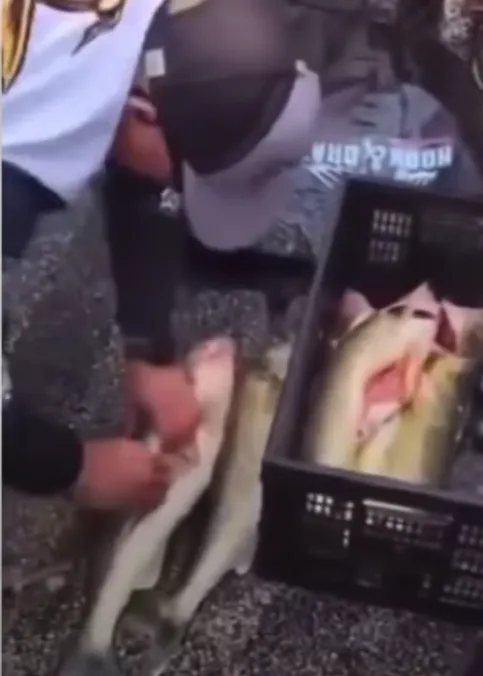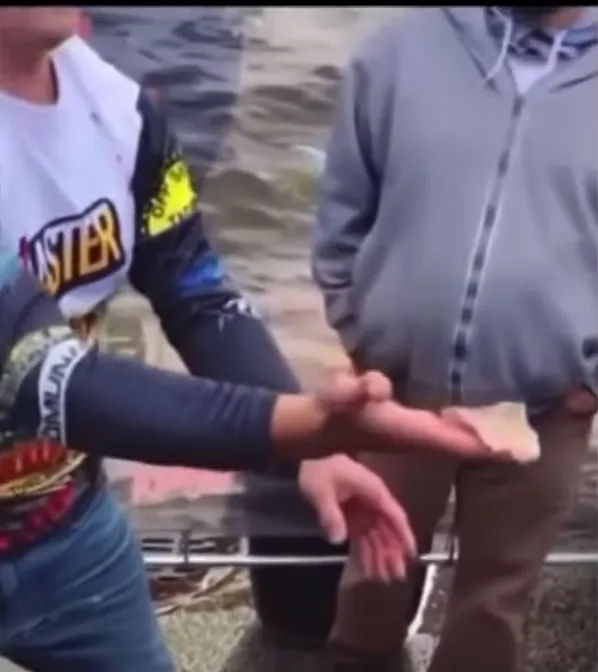Fishing Tournament Cheating: Fishing tournaments have become popular events for both beginner and pro Anglers. These events are not only a way to showcase one’s fishing skills but also a chance to win cash prizes and other rewards.
However, the growing popularity of fishing tournaments has also led to an increase in cheating incidents. This article will discuss the different types of cheating, the effects of cheating on the fishing game, and the steps that should be taken to stop cheating and detect it.
The popularity of fishing tournaments has grown recently. In order to display their fishing skills and compete for cash and other rewards, these competitions bring together anglers from all over the world.
However, the growth in tournaments has also been accompanied by a surge in instances of cheating. Cheating in fishing tournaments can have a detrimental impact on the sport and its participants.
Therefore, it is crucial to identify the types of cheating in fishing tournaments and how to prevent and detect them.

Types of Fishing Tournament Cheating
| Illegal Fishing | The most common form of cheating in fishing tournaments is illegal fishing. Anglers may catch fish using illegal methods or in prohibited areas. They may also exceed the bag limits or catch undersized fish, which is illegal and unethical. |
| Tampering with Fish | Anglers may tamper with the fish they catch to increase their weight or size. This includes injecting water or air into the fish’s stomach to make it appear larger or inserting weights into the fish’s mouth. |
| Sabotage | Sabotage is another form of cheating in fishing tournaments. Competitors may damage or remove other anglers’ equipment or fishing lines to gain an unfair advantage. |
| Rule Violations | Anglers may violate tournament rules, such as starting early or fishing in prohibited areas. They may also exceed the allotted fishing time or use prohibited bait or lures. |
The Impact of Fishing Tournament Cheating
Cheating in fishing tournaments can have a detrimental impact on the sport and its participants. It undermines the integrity of the competition and creates an unfair advantage for those who cheat. Cheating can also discourage honest anglers from participating in tournaments, leading to a decline in participation and revenue for organizers.
Preventing and Detecting Fishing Tournament Cheating
Organizers and participants can take measures to prevent and detect cheating in fishing tournaments.
| Clear Rules and Regulations | Clear and concise rules and regulations must be established for all fishing tournaments. These should outline the permitted fishing methods, prohibited areas, and bag limits. Before the competition starts, a copy of the rules should be given to each participant. |
| On-Site Inspections | On-site inspections of all equipment and fish should be conducted before and after the tournament. This will help to identify any potential rule violations, tampering, or illegal fishing. |
| Polygraph Tests | Polygraph tests can be used to verify the honesty of participants. These tests can be administered before or after the tournament to detect any potential rule violations or cheating. |
| Video Surveillance | Video surveillance can be used to monitor the fishing area and detect any potential rule violations or cheating. This can be particularly useful in areas where there are no on-site inspectors. |


Walleye Fishing Tournament Cheaters Plead Guilty in Court
Fishing tournaments are supposed to be about skill, patience, and expertise. But unfortunately, some individuals choose to cheat in order to win.
In recent news, several individuals involved in a walleye fishing tournament were caught cheating and have pleaded guilty in court. In this article, we will share the details of this case as per the information available in social space.
two men were found guilty of cheating after they were accused of putting lead weights and fish fillets in fish in an effort to win a fishing tournament and thousands of dollars in Ohio last fall.
Jacob Runyan from Broadview Heights, Ohio, and Chase Cominsky from Hermitage, Pennsylvania were caught out when the fish they submitted were found to be significantly heavier than the average walleye typically caught in the Lake Erie Walleye Trail tournament.
Tournament Director Jason Fischer became suspicious and cut open the fish to find that the fish had been stuffed with weights and walleye fillets.
In a plea deal, Runyan and Cominsky admitted to cheating and unlawful ownership of wild animals. They also agreed to have their fishing licenses suspended for three years. Cominsky will also forfeit his $100,000 bass boat.
As part of the agreement, the charges of attempted grand theft and possessing criminal tools will be dropped. The men are set to be sentenced on May 11, with prosecutors seeking a sentence of six months probation. If they successfully complete their probation, their convictions will be expunged.
Conclusion
Fishing Tournament Cheaters is a serious issue that can have a detrimental impact on the sport and its participants. It is essential to identify the types of cheating in fishing tournaments and take measures to prevent and detect them.
Clear rules and regulations, on-site inspections, polygraph tests, and video surveillance are all effective measures that can be taken to prevent and detect cheating in fishing tournaments.
FAQs
Q1. What is illegal fishing?
Illegal fishing refers to catching fish using prohibited methods or in prohibited areas. This can include using dynamite or other explosives, using certain types of nets or traps, or fishing in areas where fishing is prohibited.
Illegal fishing can result in fines, legal repercussions, and ecosystem harm in addition to being unethical and against the law.
Q2. How can anglers help prevent Fishing Tournament Cheating?
Anglers can help prevent cheating in fishing tournaments by reporting any suspicious behavior or rule violations to the tournament organizers or officials.
They can also ensure that they are following all tournament rules and regulations, and not engaging in any unethical or illegal fishing practices.
Q3. What are the consequences of Fishing Tournament Cheating?
Cheating in fishing tournaments can result in disqualification, fines, legal consequences, and damage to the sport’s reputation.
It can also discourage honest anglers from participating in future tournaments, leading to a decline in participation and revenue for organizers.
Q4. How can organizers prevent Fishing Tournament Cheating?
Organizers can prevent cheating in fishing tournaments by establishing clear rules and regulations, conducting on-site inspections, administering polygraph tests, and implementing video surveillance.
They can also educate participants on the consequences of cheating and promote ethical fishing practices.
Q5. What can be done to promote ethical fishing practices?
Promoting ethical fishing practices involves educating anglers on the importance of conservation and sustainable fishing practices.
This includes following bag limits, releasing undersized fish, and avoiding prohibited areas. Organizers can also incentivize ethical fishing practices by awarding bonus points or prizes for releasing the most fish or catching the largest fish alive.
Ribbon Fish – All about this Amazing Fish
SCUM FROG Testing & Review | Best Frog Lure for Snakehead and Bass Fishing

